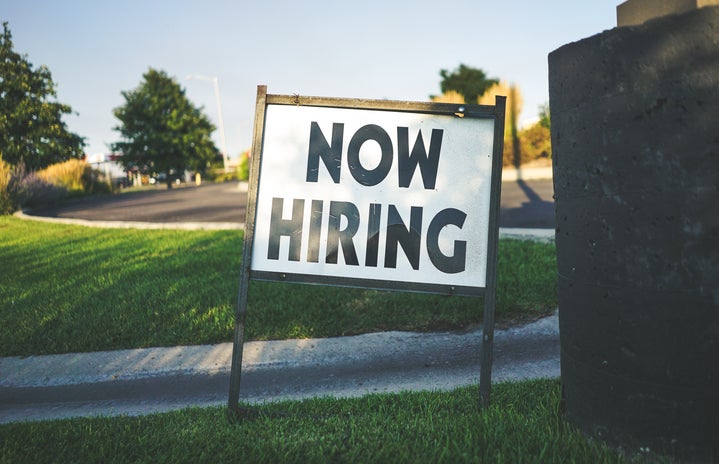As the end of semester two approaches, many final years are faced with the task of choosing whether or not to continue their education or to break into the working world. As final exams, portfolio and a thesis loom over the students, many are often not in the right state of mind to be making such an important decision. Continuing in the Irish education system after completing your first cycle or choosing to leave your college years behind and start a job that you may be in for the next 40 years is daunting. It’s a massive predicament for some and with differing opinions from lecturers, employers and education experts, no one should be envious of the position final year students are put in.
There are many pros and cons to continuing your education in Ireland. Whether you choose to pursue a master’s degree or even a PhD, you are expanding your knowledge and learning more about a certain field. Continuing your education is usually about paving the way to a successful career and graduates who continue on are often looked upon favourably in the workplace. No one can ever be overeducated and salaries often rise the more educated you are. Many people also chose to further their education to stay in a routine. The thoughts of facing a work schedule for a few years and then continuing back into full time education is daunting for many. Tackling such a huge commitment such as a masters when you’re young, with few responsibilities is often seen as a great opportunity by students.
However, a masters isn’t like an undergraduate course. Students spend four years studying their chosen course but also get the opportunity to focus on self-development, making friends and enjoying themselves when they first come to college. Students pursuing further education are only there to further their education. Enjoyment isn’t top of their priority list. They are focusing on developing their career and learning what they can. They are faced with an increased workload, more pressure and a new experience. There is also a heavy price tag when it comes to furthering your education. Undergraduate fees are expensive however masters and PhD fees are double if not triple the price of your average set of fees. This is often the reason why many students work for a few years prior to furthering their studies.
Diarmaid O’ Keefe, 23, is currently pursuing a PhD in engineering and informatics and biomedical and mechanical engineering after completing his undergrad in Biomedical Engineering in NUI Galway. He recalled the tough decision he made but stressed that he doesn’t regret continuing his education. “I chose to stay in education because of my desire to develop my understanding and expertise in the areas of research in my field which interest me, while also pursuing my own personal education as far as possible. The opportunity to do this now while I’m still young and relatively independent of other responsibilities rather than later in life when going back to education could present a drastic change in lifestyle, appealed to me”.
On the contrary, there are many arguments as to why students should pursue their career when they graduate. Committing to a master’s degree or a PhD can be difficult and students should be sure that they have chosen the right one for them. This may involve taking some time away from college to think about this, away from the pressure of final year deadlines and peer pressure. Pursuing work straight after college is also a fantastic opportunity for students to do some work experience in a number of different areas to get a feel for what they want to study if they choose to return. It often takes many young people to work in area to realise that it isn’t what they want to do for the rest of their lives. Working after graduating gives students the opportunity to find out what they really want to do.
Pursuing work often gives students some financial leniency. They can work to pay for their own education which is important to young people. They also have the opportunity to work for a company who may offer to sponsor the masters if the student is committed and hardworking which will relieve some financial pressure. Some even argue that if you work in your chosen field of study that ultimately you will bring more knowledge and understanding to your masters.
Eoghan Allen, 22, decided that after completing his undergraduate degree in Business and Management in Maynooth University that he would work before pursuing further education and soon found that what he thought he wanted to do wasn’t of interest to him at all. “For those like myself who are unsure as to whether they wish to pursue a career in the field of their undergraduate degree then perhaps spending some time working in that area before going into postgraduate studies is advisable” said Eoghan. “Disliking a certain type of work can inspire someone to find what they really want from their career in the workplace, acting as a sort of reality check”.
When making the final decision between furthering your education of going out into the world of work, students should fully ensure that they are confident in their decision. After all, it is their future and no one else’s and students should only consider their own needs, wants and desire when making the decision. If there is any doubt over what to do then considering seeking an internship or working in the area to get an understanding for what the career entails. If you’re fully confident in what you want to study then don’t let anyone talk you out of and pursue your dream.


